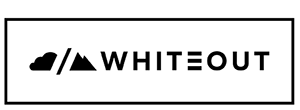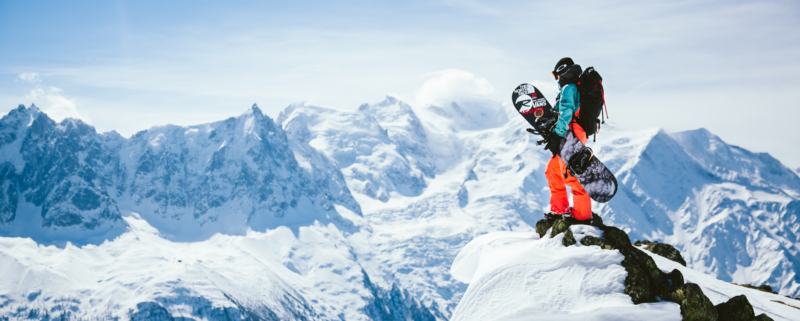Over the past few years we’ve done a good bit of introspection and started to get hung up on some philosophical questions — Is snowboarding a purely selfish pursuit? Is it just another way to feed our egos? Is it anything more than an escape from reality, fueled by rich kids and corporations?
For more insight, we teamed up with Nytaï Aidlin, a young rider from Geneva with a lot of questions about snowboarding’s ability to address society’s challenges. The result is a series of interviews with people who run organizations that are focused on making snowboarding, and our world, a better place. His third conversation is with Fanny Bellier about altruism…
Hi Fanny! Could you tell us a little bit about Riders for Refugees (RFR) and your general mission?
Hey Nytaï! RFR started from two observations. First, we were conscious of the increased migratory flow in Europe, with people who are not necessarily equipped to face the harsh winter conditions. At the same time, we have a growing outdoor industry with new clothes and designs every year. We wanted to create a link between these two worlds and their realities. How can the outdoor community help people in need, especially in winter?
In terms of process, it’s pretty simple. We collect unsold or used clothes from individuals, brands, and shops. All of this is then brought to Annecy, where we sort all the clothes, gloves, warm jackets, sizes etc. A lot of volunteers come to help to pack everything well. Thanks to them! Last year, more than 10,000 donations were collected. That’s a lot!
All of this is then sent to a dozen local organizations that work with refugees or migrants. They take over from there. Whether it is in Calais, Paris, Athens or Haute-Savoie, we always dispatch on the basis of local needs.
Enlarge
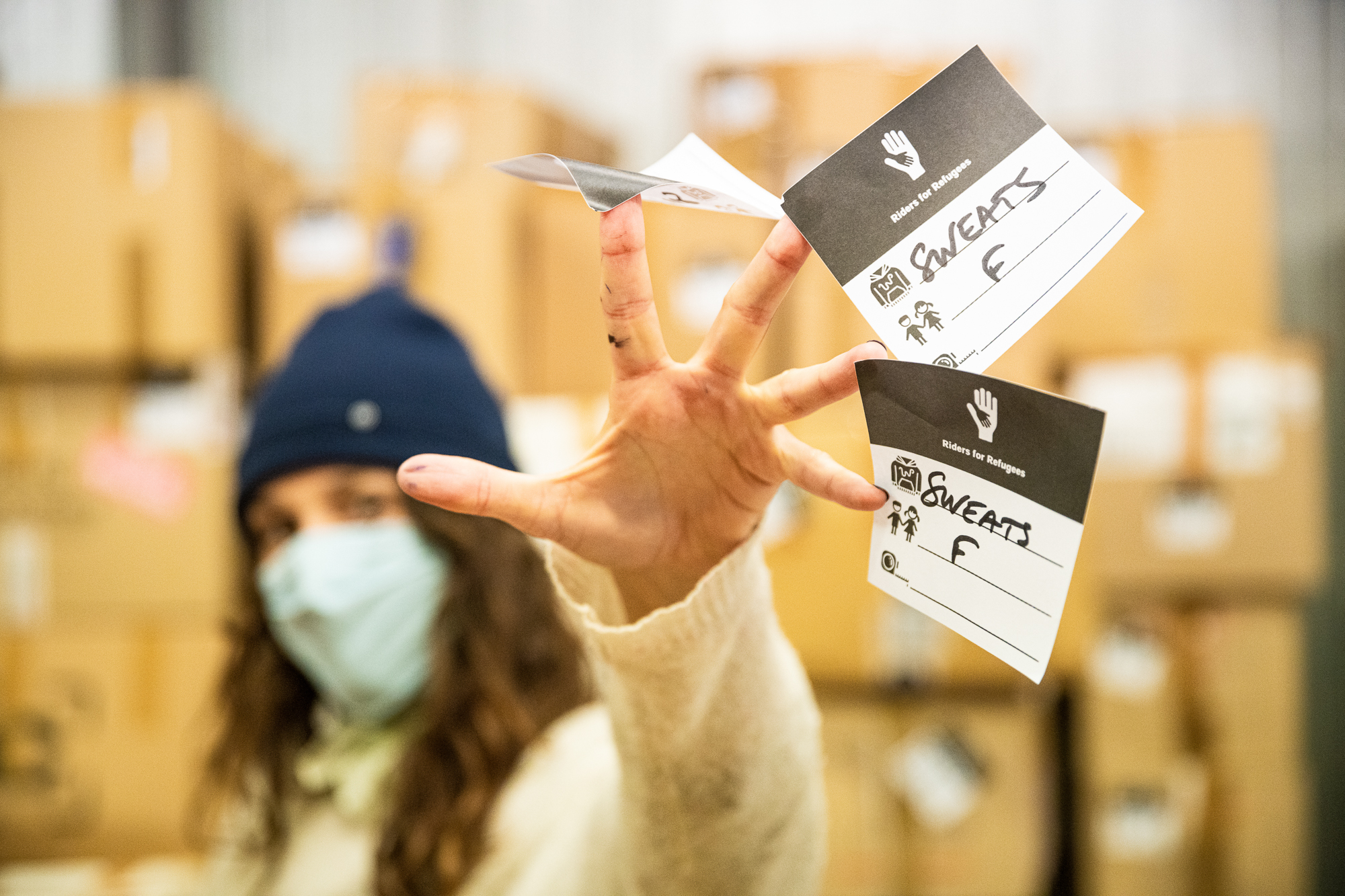
It’s a wonderful job that you do. How did you personally end up at RFR?
I got to know RFR through their social media and campaigns. Clothes were mostly collected in France and since I’m based in Switzerland, I thought there was an opportunity to develop it here. We have a big community of riders and outdoor sports enthusiasts. I contacted RFR and asked if they wanted to develop it in Switzerland. David Malacrida, the president, told me right away, “Super cool, let’s go for it”. It has grown a little bit every year and now I’m in charge of the French speaking part of Switzerland.
How has the Swiss public reacted to the project?
Every year we get more and more clothes. I think my car is not big enough anymore. I will have to invest in a truck (haha).
We really started small. At first, we only worked with the Yosemite store in Lausanne. The word spread, and the movement has grown since. Year after year more people are getting involved. Now we have different collection points. I’m trying to grow beyond Lausanne, especially in Valais. What has really helped is that there is an investment from the partners. They are our collection points, but they also carry the message and bring awareness through their different means of communication. And sometimes it’s groups that I wouldn’t necessarily have thought of, that completely identify with it.
There’s the brand, Scott, for example, who approached me and said, “We really want to be involved. It’s an important topic for us and we would like to organize an internal collection with all of our staff.” Last year, there was also a person at Inspire Yoga, a yoga studio in Verbier, who spontaneously organized a collection in Verbier. It was really cool, and they are now a new official partner in Verbier. It’s great because it’s not necessarily a partner I would have thought of. We also work with the Alaïa Camps in Crans-Montana who reach the whole outdoor community, skate, snow and so on… so it’s great.
We have so many different partners in Switzerland, it’s rewarding. And every year, they are very motivated to participate again and support it. It is a very positive movement.
Enlarge
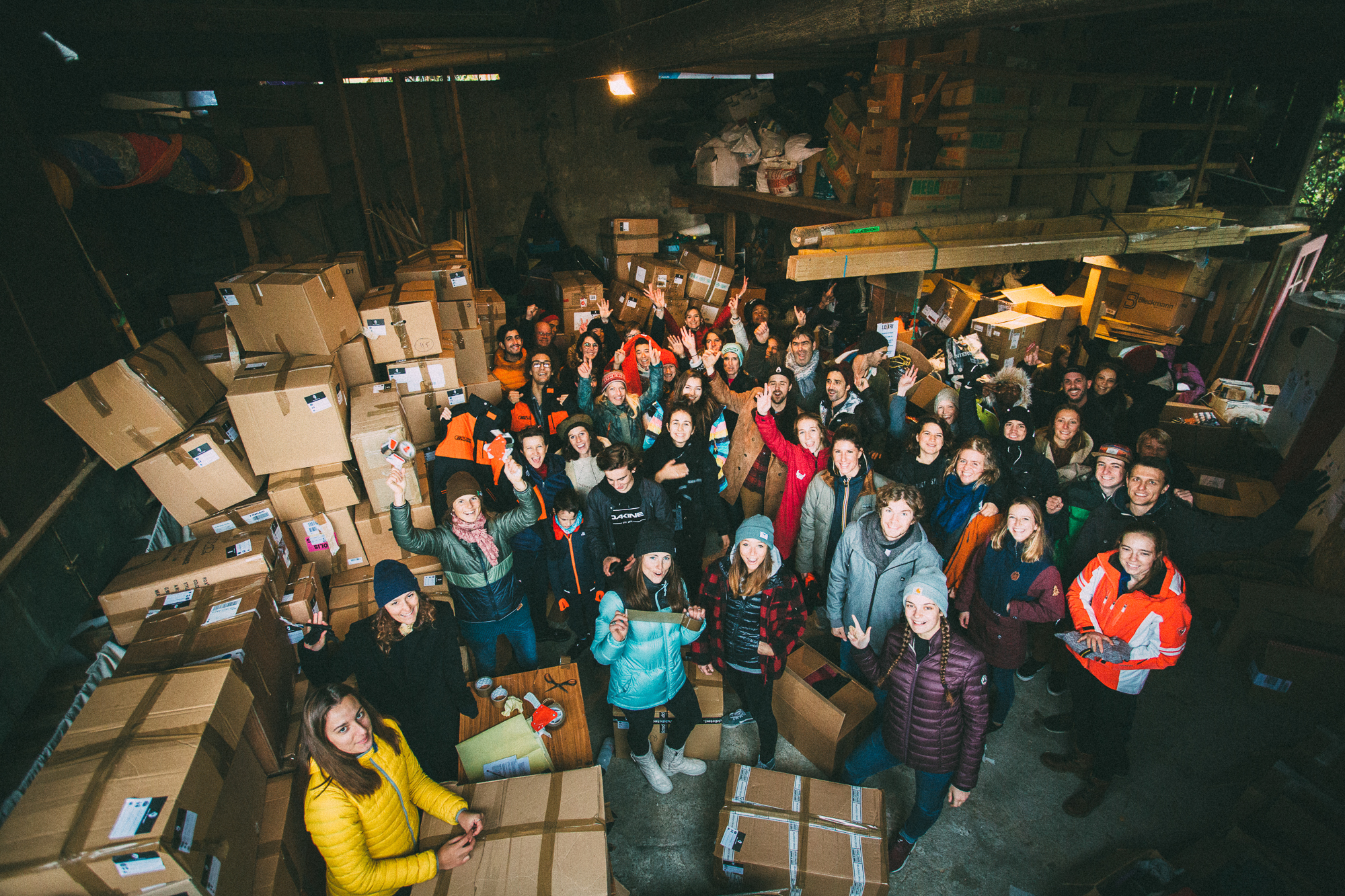
Did you encounter any particular challenges while expanding into Switzerland?
Yes, I sometimes have partners who refuse to join the adventure. The biggest barrier is logistics. It’s not always easy for a shop to set up a collection point and make sure that everyone is informed. If it’s a very small shop and they don’t have storage capacity, sometimes it’s complicated to manage. I always offer to help out during the month if there is a need to collect.
Do you put everything that you collect at home in your living room?
Yeah (Hahaha). The month of October is a bit complicated. There are boxes everywhere in my apartment! We don’t have any storage place in Switzerland so I gather everything at my place before sending it to Annecy.
I go all around Switzerland to pick up the clothes with my van. It always takes some time. But the partners are very supportive and flexible… and most of them do not hesitate to drive a bit to meet me half-way. For the moment, I am alone in Switzerland but I’m more than happy to involve other volunteers who would like to participate.
Enlarge
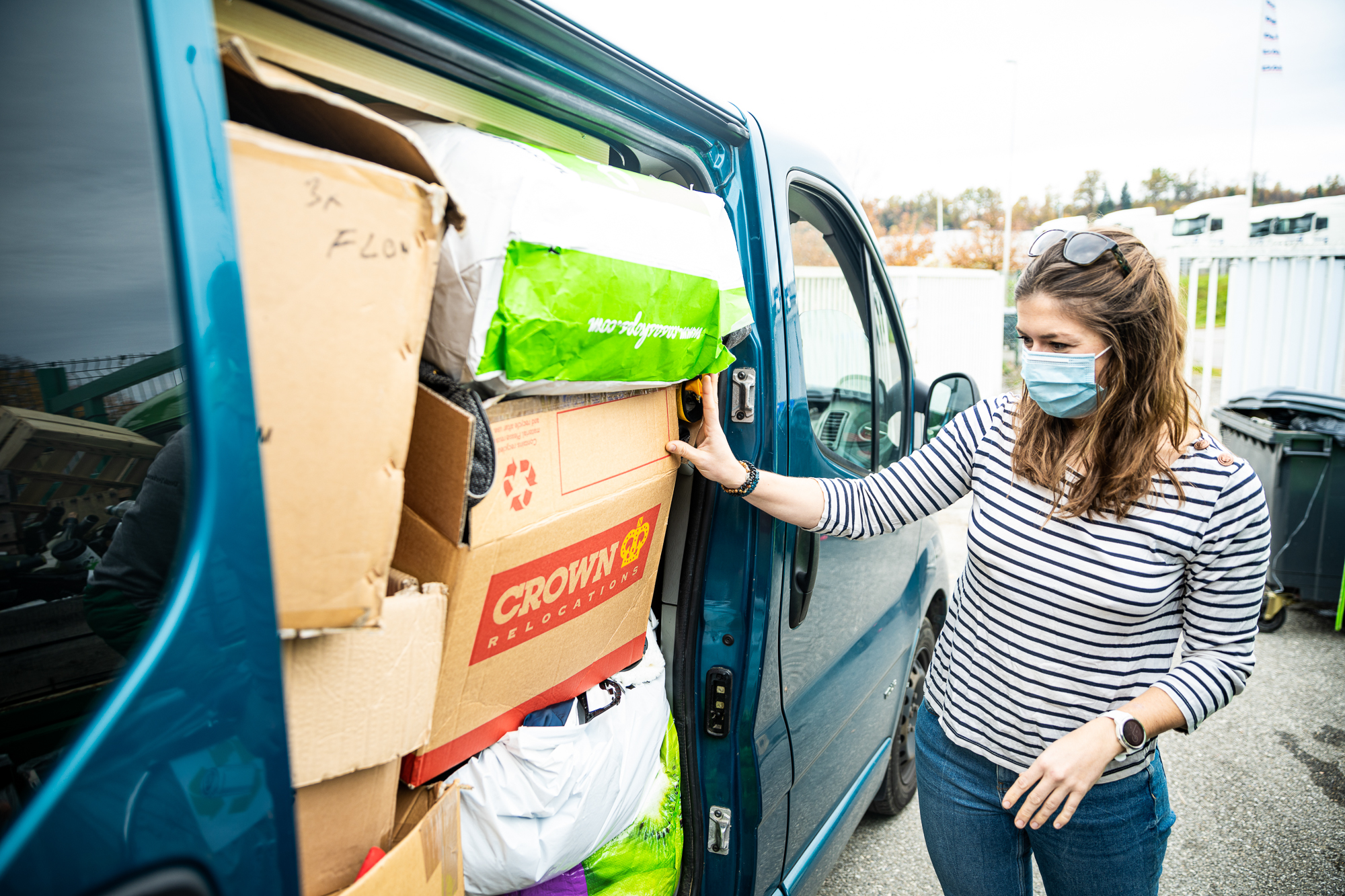
Who won the prize for the most generous country, Switzerland or France?
It’s a difficult question because we don’t have the same number of partners. Proportionally, France will weigh more. They work with brands while we only have individuals. What I can tell you is that the more the years go by, the more donations we have in Switzerland. It’s very positive.
So no Swiss brands are involved so far?
In Switzerland, we only mobilize individuals at this stage. Partner stores are collection points and individuals come to donate. In Lausanne, in particular, there is a good mountain sports community, but there are also the sports federations. We would like to reach this public too. We also have event organizers who are involved, like the Freeride World Tour, or brands like Scott who mobilize every year to make internal collections.
For the moment, we are not working with Swiss brands. But it could be a possibility later on. Most of the partner-brands are in Annecy. That where we have all of the factories that give us their unsold products like Rossignol, Quechua, Millet and Picture Organic Clothing, Salomon… among others.
Enlarge
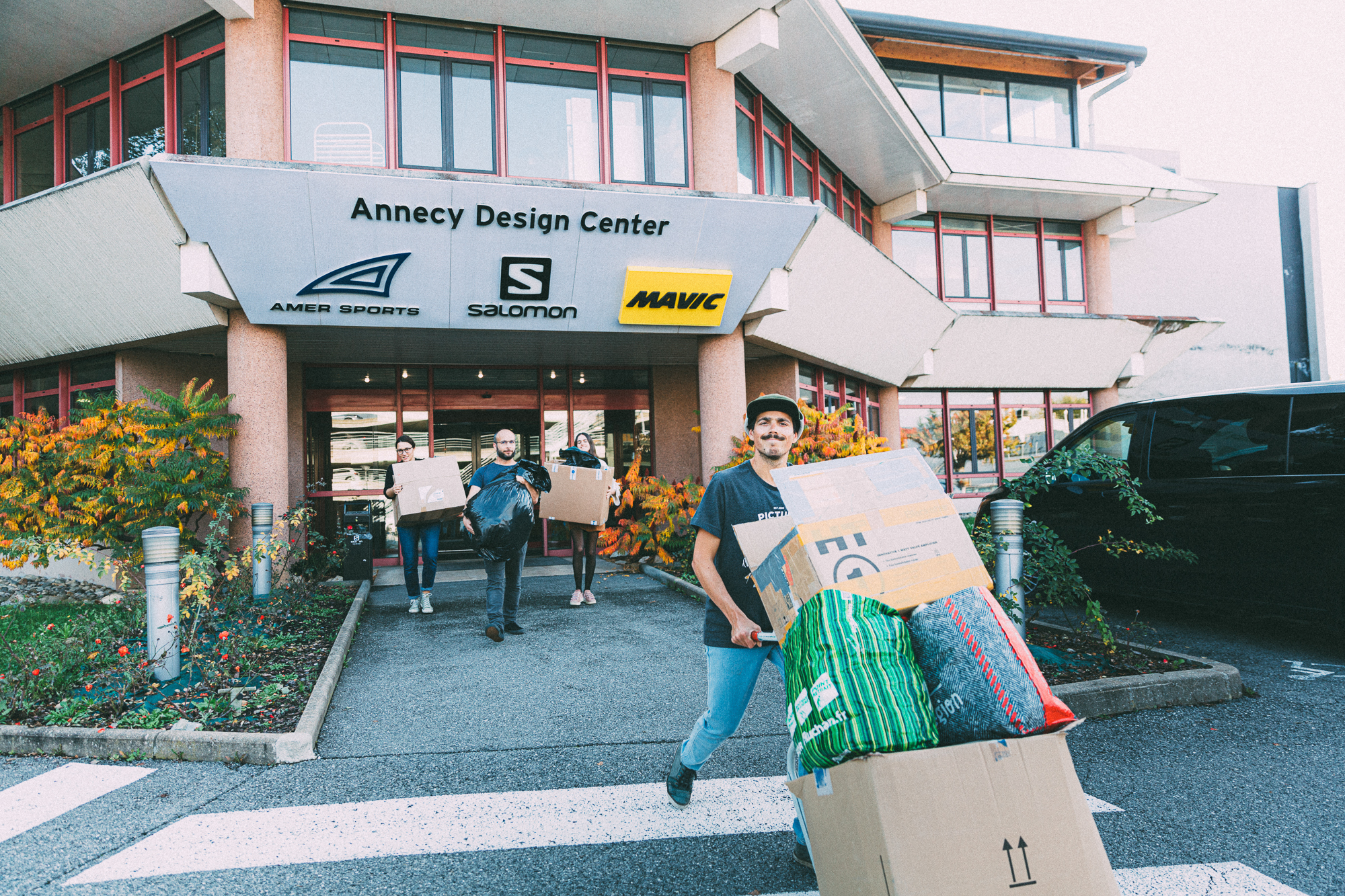
Do you think that there is an attempt from the brands to embellish their image by making it part of their communication? At the end of the day, I wonder if this could be a method of greenwashing for them…
At RFR, we work in collaboration with the brands that are motivated and aligned with our actions. In general, I think that there is a shift in the way that companies think about their social responsibility. They are starting to rethink their way of producing, their management and their organization. Especially with the companies, that have a link with the environment. I think that there is a real awareness and a real desire to change. Companies can act as a driver and an inspiration for positive change.
In addition to donating warm clothes, you also organize the Snow for Refugees event. I read that you’re planning to invite 50 refugees on snow to help them discover the mountain and learn to ride…
The idea is to go a step further in the connection that we make with refugees. It’s not just about collecting clothes, but also about creating a connection, getting them involved and giving them a taste for mountain sports. The objective is to create a link with the refugees and the local population around mountain activities and to create a link of solidarity and inclusion — a social link through the mountains. It’s an opportunity for the refugees to forget their life for a day and learn something new. For many, arriving here was the first time that they saw snow.
It’s a goal to make the project grow from year to year, but with Covid, we had to cancel it last year and this year too. The third time… Yambi, a sister association of RFR, was able to take a group of refugees up Mont Blanc with Marion Haerty, one of our our ambassadors.
Enlarge
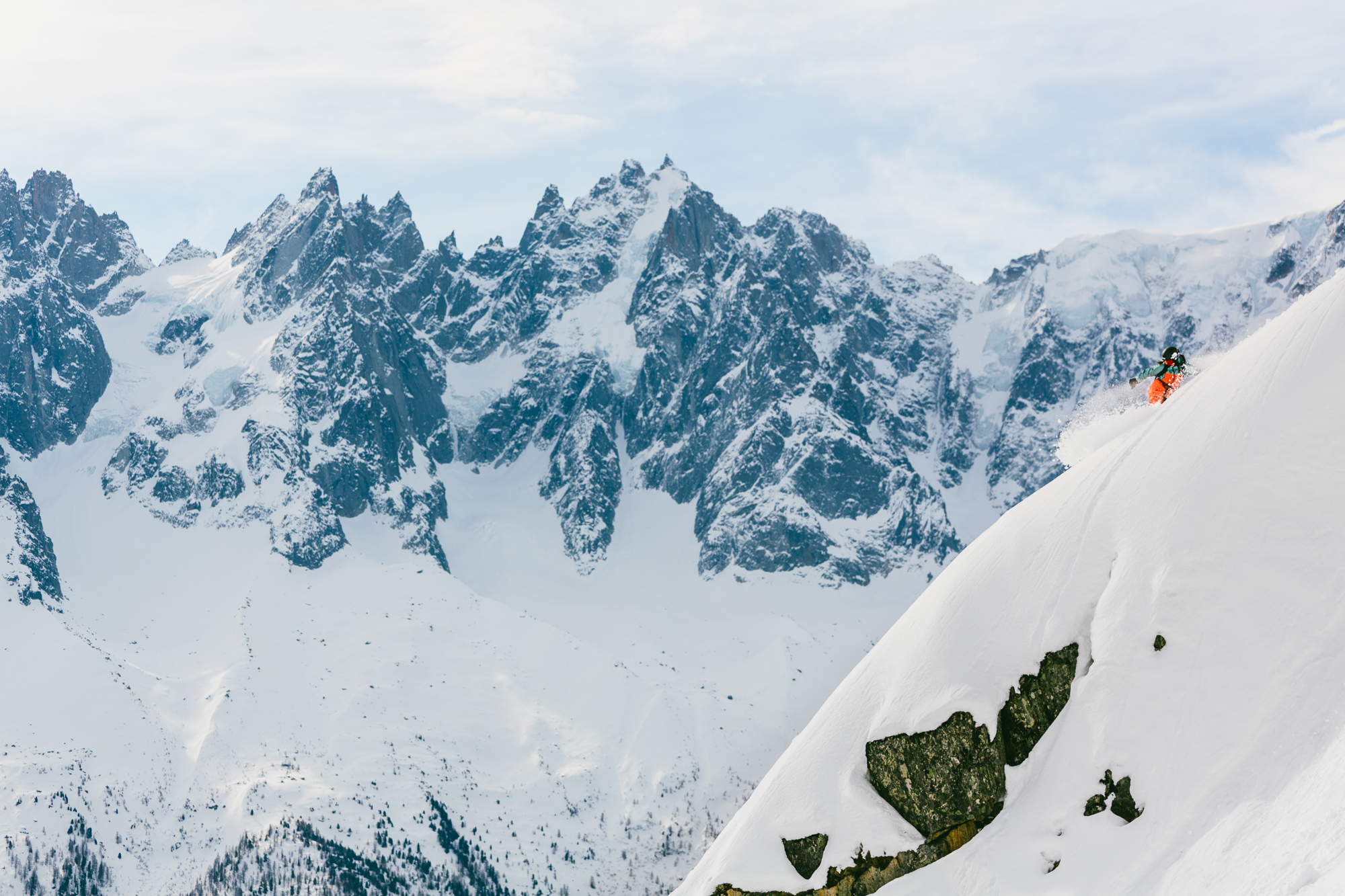
Do you think there is an effort on the part of the industry to make mountain sports more accessible?
Yes, I feel like there is a change in terms of infrastructure. I think COVID has pushed even more ski resorts and mountain communities to think differently. In my opinion, there is a bit of a combination with the environmental crisis. How can we reinvent mountain activities in a more respectful way? This is important from an organizational point of view, for a city or a resort, but also as a practitioner. Last year, with the COVID situation in Switzerland, the resorts stayed open. But elsewhere, everything was closed and they had to be creative.
Skiing and snowboarding are cool, but hiking, for example, is also practiced in the mountains. It’s fun and accessible to everyone. I think that there has been a real effort to develop things that are more respectful of the environment. To rethink our approach to the mountain.
It seems a bit contradictory. On the one hand, we introduce new people to the mountain, or at least we make the mountain more accessible, and on the other we defend the ecological point of view. Wouldn’t bringing more people to the mountains be counterproductive?
In the case of Snow for Refugees, the objective is not at all to popularize the sport, or to create future riders who will do super tricks. The objective is social: to strengthen well-being through sport and social inclusion.
You have to imagine, these people have left everything behind, they don’t know anyone, they may not speak the language, they are stigmatized. We don’t just want to turn them into new riders, but to help them use mountain sports to create links through touring or climbing… the approach is more important than the activity. For me, it’s really this approach of inclusion, of creating links, of social intelligence finally. Snowboarding and skiing are not the final objective. They are tools for social inclusion and well-being.
Enlarge
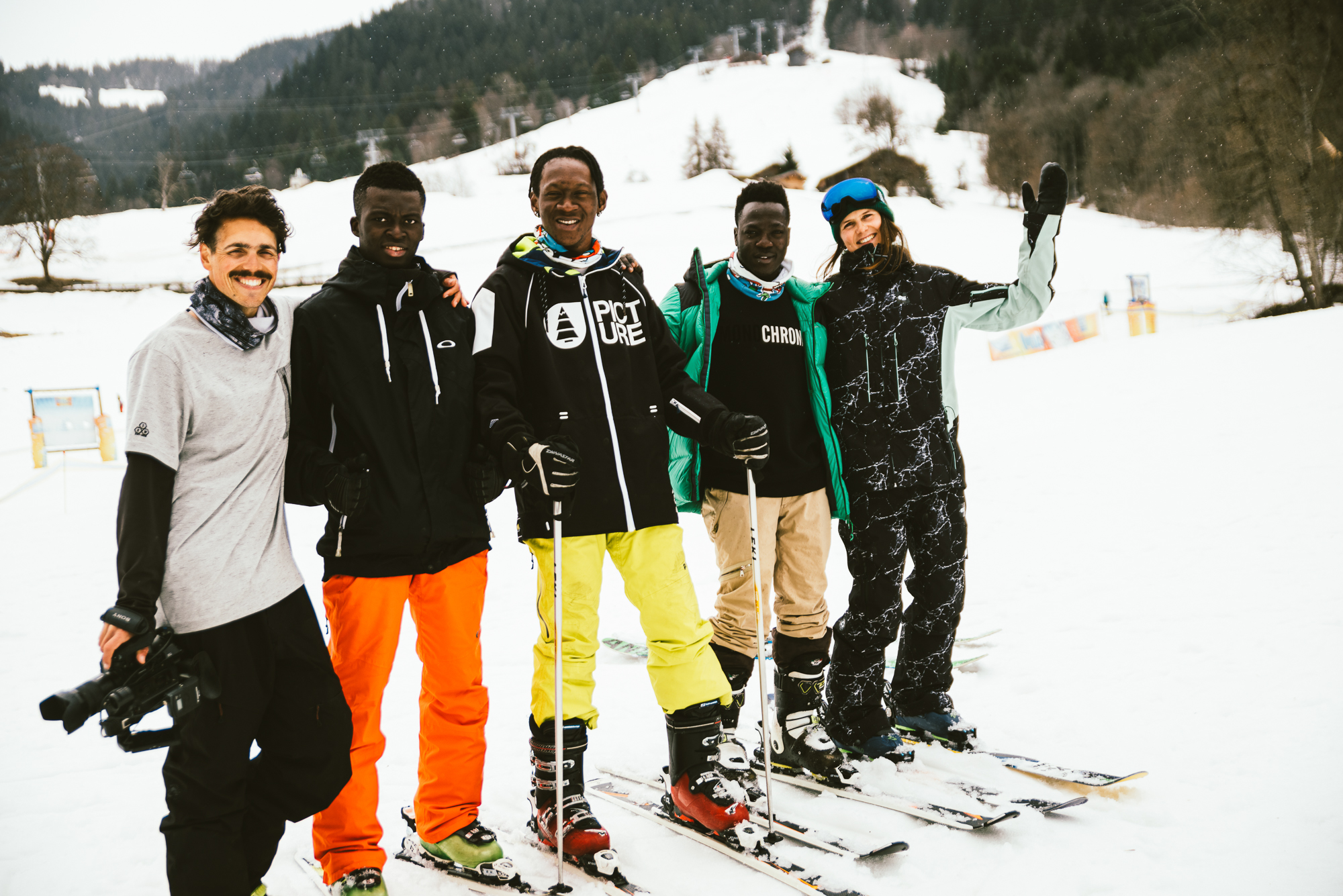
Do you think that the outdoor community really has the will to get involved with these social issues?
We usually hear a lot about projects related to the protection of environment, like Protect Our Winters or Mountain Wilderness, for example. Mountain sports practitioners can become good environmental ambassadors. But there were fewer initiatives around the textile industry. It was something innovative and dynamic that attracted me to Riders for Refugees.
There are so many issues. We are just a small link in the chain. It’s not perfect, but it’s already a great project! It’s great to make people aware of this issue and see how they can get involved.
In your experience, does the community of riders seem receptive to this kind of project?
Yes, more and more. We see with Riders for Refugees, we have more persons donating, promoting our collection efforts and an increasing number of partners. The outdoor industry is also mobilized and is concerned about their social and environmental impact.
When it comes to using sport as a tool for development and inclusion, we see a growing number of initiatives, especially for young people. For example, Skateistan. Or more locally, LongBoardCrew (LGC) organizes a lot of workshops with the idea of using skateboarding as a tool to create a bond, to reinforce skills for girls and to make them feel comfortable and more confident. They try to break down the social stigma through skateboarding. LGC supported our campaign and helped share it through their network. They’re a group of 3000 girls in Switzerland who are mobilized and are sensitive to this kind of action.
Enlarge
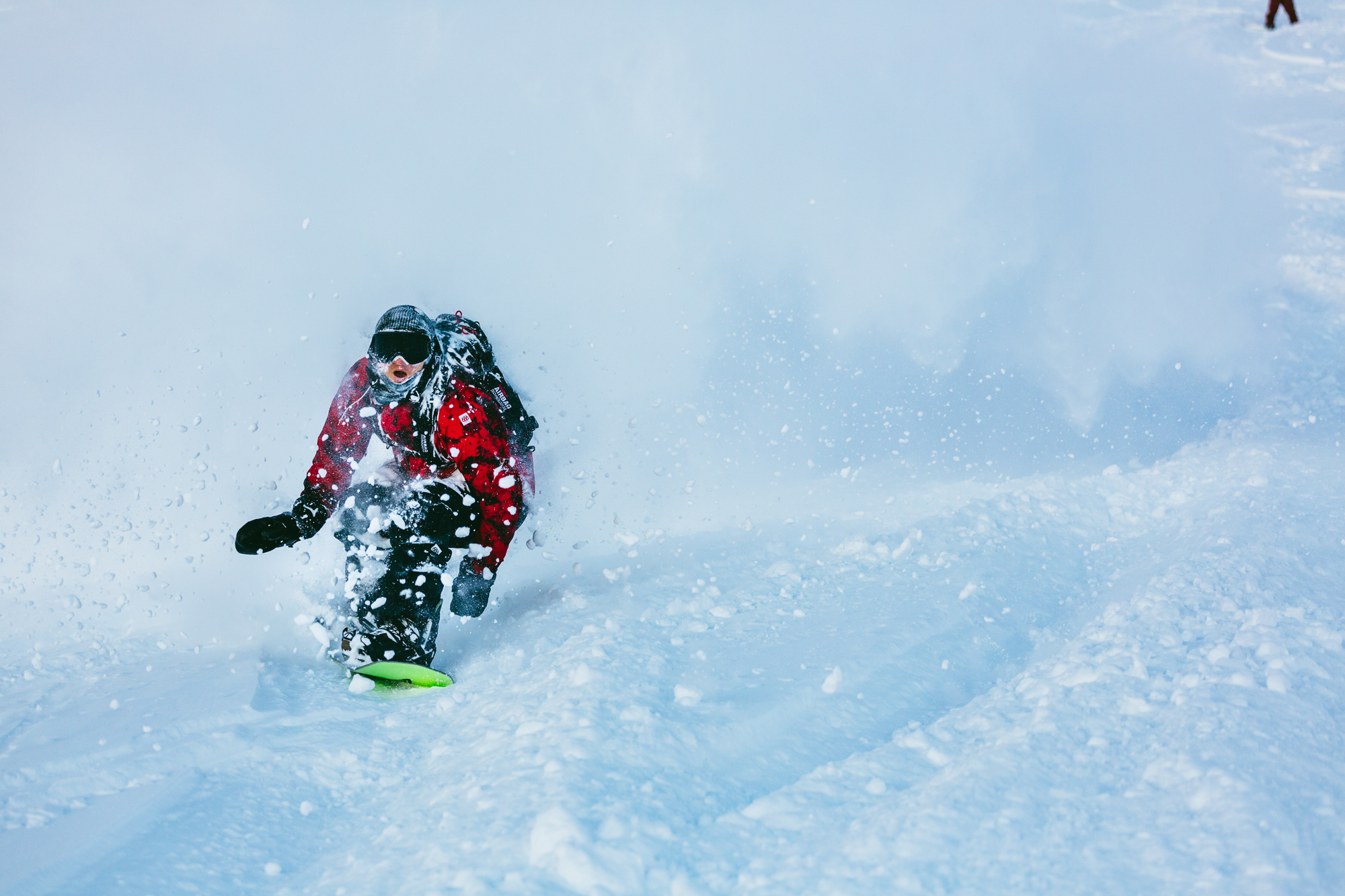
This sort of engagement is so cool! Do you have any advice for young people who would like to get more involved?
They should find a topic that motivates them — where they want to make a difference. They are so many great initiatives that are already looking for motivated volunteers. Everyone can make a difference. And it can start at a very local level.
If they would like to contribute to RFR, they can contact us. We look for volunteers every year. The more people involved, the bigger our impact. Today, we are mostly involved in French-speaking Switzerland. But we had our first partner in Zurich this year. If there are other people or partners in Switzerland who want to mobilize, they should not hesitate to get in touch!
So this is a call to the Swiss-German region to get involved?
That’s right! (Hahaha) Exactly!
You have a nice group of ambassadors: Jérôme Tanon, Victor Daviet, Marion Haerty, Léo Taillefer, Coline Ballet Baz…
Yes, and this year we have one more ambassador! Damien Castéra, a pro surfer. He is the first ocean rider to join the RFR. So far, we only had ski or snow-oriented ambassadors but it’s so great to have a pro surfer joining the campaign, raising awareness and organizing collections within the surfing community.
Enlarge
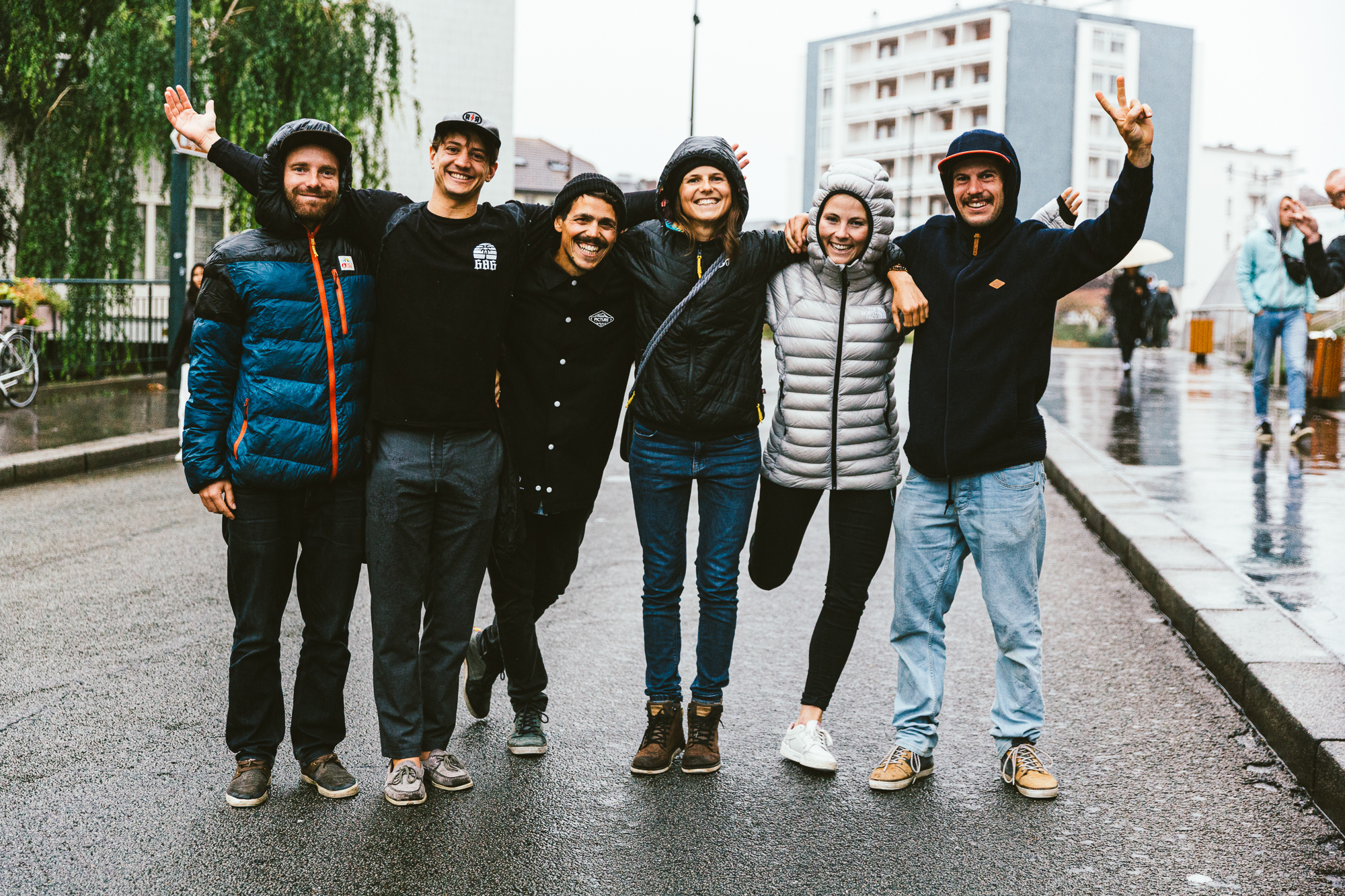
Thanks a lot for sharing this great project Fanny! Where are you going now?
I’m going to Annecy to meet up with the rest of the crew. That’s one thing that’s great about Riders for Refugees. Between all the partners, from brands, to individuals, to athletes, it’s kind of a big family of super positive people.
It’s great to see so many people getting involved, giving their energy and time, raising awareness, telling others about it, and making donations. Everyone can participate at their own level.
Big thanks to David for the photos! Find more info about Riders for Refugees on their Website.
